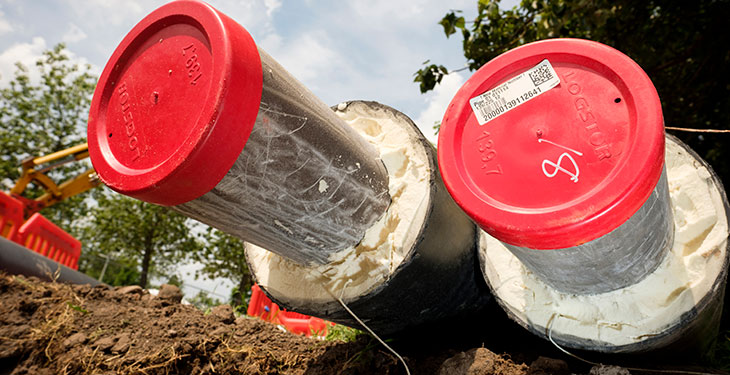Bogdan Tudorache
The district heating system is on the verge of collapse: the total amount of energy losses (1.43 million GC per year) could heat a city like Oradea for almost 2 and a half years, USR Plus claims. “We lose 2.3 million liters of added water per hour, which is almost an Olympic swimming pool! Every winter, families from entire neighborhoods remain in the cold, and in summer, in the midst of a sanitary crisis, they do not have hot water to ensure their basic hygiene conditions,” the platform’s program in the field of district heating shows. In a first stage, a new study will be carried out to identify the weaknesses in the district heating system and a new district heating strategy will be carried out, the document shows.
Here is what the USR Plus platform promises, which, at the time of editing the present article, after the partial counting of votes, seems to have been awarded the portfolio of Mayor General, as well as several portfolios of Sector Mayor:
“Objectives of urgent intervention
Increasing the degree of continuity in the supply of hot water and heat so that the people of Bucharest can really benefit from this vital public service when they need it.
Reducing energy and water losses in the system, which will reduce the impact of the system on the environment (less losses means less heat produced, ie less fuel consumed, so less greenhouse gas emissions – less pollution) and to improve the financial results of the system.
Intervention plan
This structure will have the following attributions:
- The real technical analysis for the identification of the weak points in the district heating network, with maximum risk of damage in winter 2020-2021 and their permanent monitoring;
- Preventive interventions outside the heating season in the points with the highest risk of damage;
- Remediation work where there is already a massive loss of water and energy.
- The use of modern technologies, without excavations/ with restricted excavations in order to avoid blocking the city, in the conditions in which it is necessary an annual rehabilitation of a significant number of kilometers of pipeline (50 – 100 km).
- Emergency stocking of materials in such a way as not to waste time when it will be necessary to carry out quick works, in order to reduce the discomfort felt by consumers;
- Zonal intervention teams to operate on a permanent basis (non-stop), to ensure the repair of damages in the shortest time;
- Starting and carrying out, in parallel with the process of evaluating the financing application submitted on European funds for the Bucharest district heating system, the public procurement procedures for the implementation of the European project, in order to gain time.
- Signing the design and execution contracts, with suspensive clause (they will enter into force upon signing the financing contract).
Other priorities for the district heating field:
- Modern Central Heating – a tool for clean air and better life. A 4th generation system, resized and with a modern architecture, based on a cogeneration core, heat storage and the use of renewables.
- “Liberalization” of production/ Construction of new plants – Attracting investors for the construction of high-performance, large-scale cogeneration plants/in district/area/neighborhood, in areas with thermal energy deficit identified by the district heating strategy, including for new residential or business neighborhoods, by bringing production as close as possible to the place of consumption, especially in the case of integrating renewable sources into the energy mix, and by offering the possibility of concession of the distribution network.
- Hot water at any time: recirculation and individual metering
- Thermal energy from renewables
- Energy efficient public and residential buildings: cleaner air and cost savings on a budget
- Informing citizens via SMS/email/ mobile application regarding breakdowns, scheduled works or operation under parameters that affect the thermal point that serves the area where a citizen lives.”
